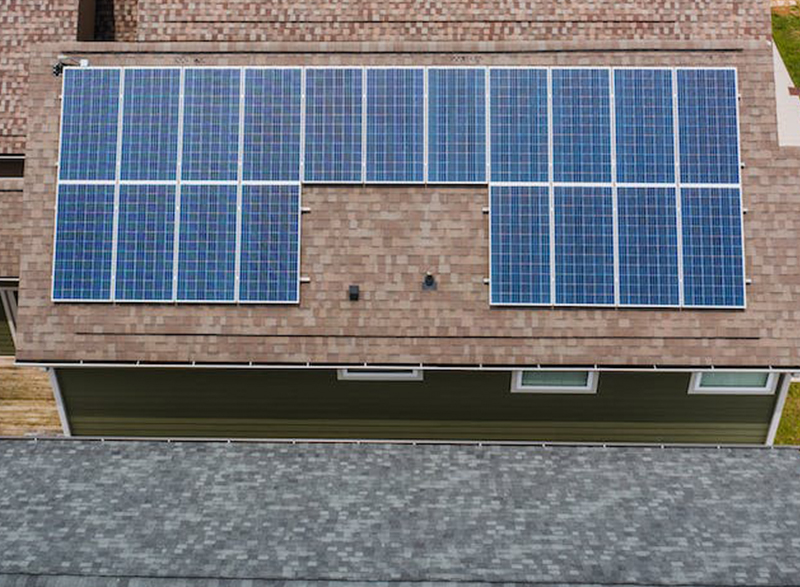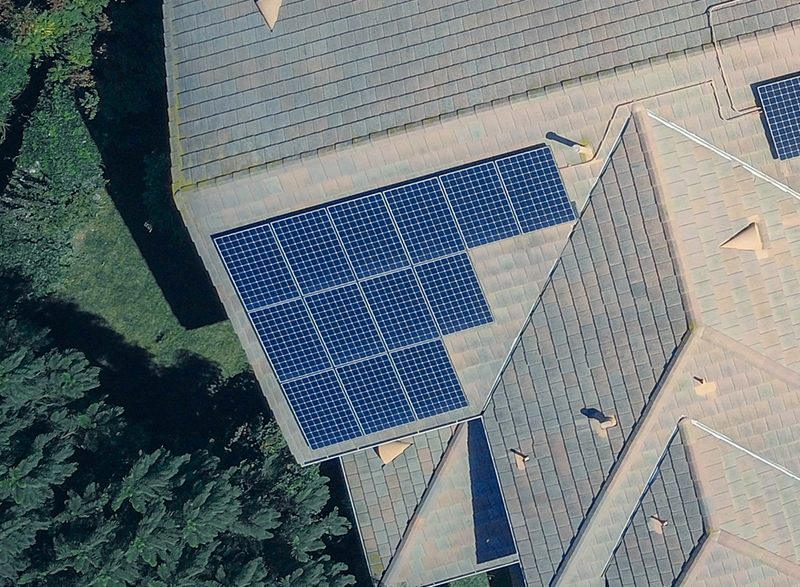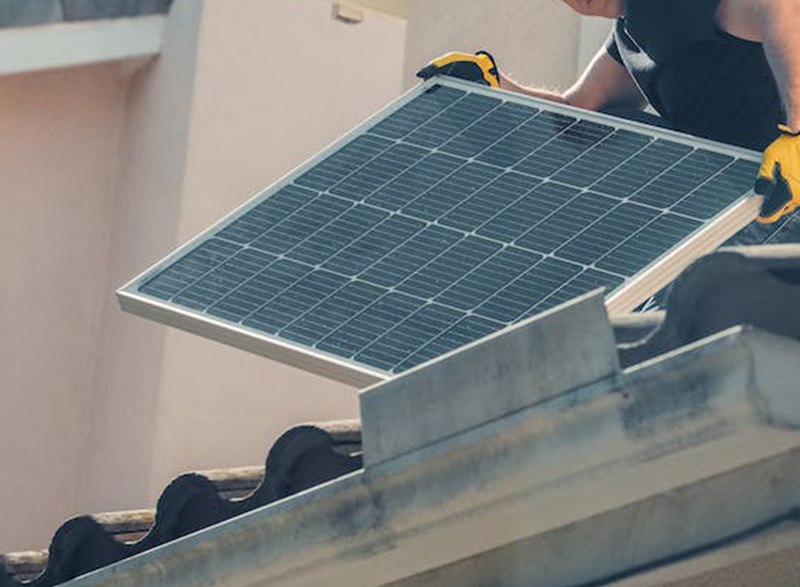As the sun shines brightly over Atlanta, Georgia, many homeowners are considering the benefits of harnessing solar energy. In this Solar Panel Cost in Atlanta Georgia: Complete Guide, we will delve into the various factors that contribute to the overall cost of installing solar panels on your home.
Replacement Cost
How Much Does It Cost to Install Solar Panels in Atlanta, Georgia?
Let’s get into the details of solar panel installation costs in Atlanta, Georgia.
When considering solar panel installation, the first question that comes to mind is: how much will it cost me?
Well, fear not. We’ve got you covered with all the details for solar panel costs in Atlanta, Georgia.
The total expense of mounting solar panels is contingent on numerous elements, such as labor and material expenses, system size, and available incentives.
- Average Cost: In general terms, homeowners can expect to pay between $15k-$25k for a standard 5-kilowatt (kW) residential solar panel system in Atlanta.
- Incentives & Rebates: Luckily for you Atlantans out there, Georgia Power’s Solar Buyback Program, federal tax credits (ITC) and other local incentives can significantly reduce these costs by up to 30% or more.
- Savings Over Time: Moreover, installing solar panels could save you around $50 – $150 per month on electricity bills depending on your usage patterns. That adds up over time.
You can expect to pay between $15k-$25k for a standard 5-kilowatt (kW) residential solar panel system
To get an accurate estimate tailored specifically for your home, try this solar calculator.
Solar Panel Material Cost
How Much Do Solar Panel Materials Cost in Atlanta, Georgia?
Let’s talk numbers. When considering solar panel installation in Atlanta, it’s crucial to understand the cost of materials.
The good news is that solar panel prices have dropped significantly over the past decade, making going solar more affordable than ever before.
- Poly-crystalline panels: These budget-friendly options typically range from $0.50 to $0.70 per watt.
- Mono-crystalline panels: Known for their efficiency and sleek design, these panels can cost between $1.00 and $1.20 per watt.
- Thin-film panels: Lightweight and flexible, thin-film technology usually costs around $0.60 to $1.00 per watt.
In addition to the panels, an inverter (priced at $3,000 – 5,000) and mounting hardware ($500 – 700) are necessary components for a residential solar system in Atlanta.
In total, you can expect a residential solar system in Atlanta to cost anywhere between $15,000 and $25,000 before incentives and rebates.
Pro tip: Don’t forget to factor in the federal tax credit, which can save you up to 26% on your solar panel installation.
Installation Cost
How Much Does it Cost to Install Solar Panels in Atlanta, Georgia?
Are you a homeowner in Atlanta, Georgia considering installing solar panels? One of the most important factors to consider is the cost of labor.
The cost of labor can vary depending on factors such as installer experience and project complexity. On average, professional installation services can cost between $0.50 and $1.00 per watt.
For example, if your solar panel system has a capacity of 5 kW (5,000 watts), you can expect to pay between $2,500 and $5,000 on labor alone.
- Experience matters: While more experienced installers may charge higher rates, they could also provide better quality workmanship and customer service.
- Rooftop vs ground-mounted systems: Installing rooftop panels is generally more expensive due to added safety measures and potential roof repairs or reinforcements needed before installation begins.
- Ease of access: If your property has limited access or challenging terrain, this could increase labor costs as well.
Solar Panel Materials

What are the Best Solar Panel Materials for Atlanta, Georgia, and Their Average Costs?
Alright, let’s dive into the world of solar panel materials.
In order to make an informed decision on which solar panels are best suited for your home in Atlanta, it’s essential to understand the different types available.
So, without further ado:
- Monocrystalline Silicon – These panels, boasting a black hue and higher efficiency than their counterparts, come with a price tag of around 80-120 cents per watt.
- Polycrystalline Silicon – Polycrystalline silicon panels, with their decreased effectiveness compared to monocrystalline ones but at a more economical rate ($0.60-$0.90 per watt), may be the perfect solution for you; they have a blueish hue and are very affordable.
- Thin-Film Solar Panels – The most budget-friendly option (around $0.50-$0.70 per watt) is also lightweight and flexible; however, they require more space due to their lower efficiency rates.
To choose the right material for your needs in Atlanta, consider factors such as budget constraints, roof size, or aesthetic preferences – there’s no one-size-fits-all answer here.
Solar Panel Manufacturers
Which Solar Panel Manufacturers are the Most Popular and Why?
As a homeowner in Atlanta, choosing the right solar panel manufacturer can be a daunting task. No need to worry – we’ve got you covered with a list of some popular solar panel manufacturers that Atlanta homeowners trust.
Here’s a list of some popular solar panel manufacturers that homeowners in Atlanta trust:
- SunPower: Known for their high-efficiency panels and comprehensive warranty.
- LG Solar: Offers a range of efficient panels with sleek designs.
- Panasonic: Combines cutting-edge technology with great efficiency ratings.
The popularity of these manufacturers stems from their commitment to producing reliable, efficient, and durable solar panels that meet homeowners’ needs while also providing excellent customer support services.
To make an informed decision about which manufacturer is best suited for your specific requirements, consider factors such as cost per watt, product warranties, and local availability.
Solar Panel Installation Time
In Atlanta, Georgia, how long does it typically take to install solar panels?
So, you’ve decided to go solar and are wondering how long the installation process will take. No worries, we’ve got your back covered.
The time it takes to install solar panels can vary depending on several factors such as system size, roof type, and weather conditions. But let’s break down the average timeline for a better understanding:
- Site Assessment: Before any work begins, a professional installer will visit your home to assess your property and determine the best placement for your solar panels. The assessment process usually takes 1-2 hours, after which the installation of solar panels is expected to take between 1-3 days depending on the size and complexity.
- Solar Panel Installation: The actual installation of the solar panels typically takes between 1-3 days. However, larger systems or complex roofs may require additional time.
- Inspection & Interconnection: After installation is complete, an inspection by local authorities is required before you can connect your system to the grid. This step may take a span of days to as much as two weeks, based on local authorities’ availability.
To sum it up: On average, expect around 1-4 weeks from start-to-finish for a typical residential solar panel installation. Note that this timeframe does not include any potential delays due to permitting or material shortages which could extend the overall process further.
Patiently waiting pays off though – once installed, you’ll be harnessing clean energy while reducing those pesky electric bills.
Solar Panel Shipping Time
How Long Will It Take Before You Receive the Solar Panel Materials?
Congratulations. Now, let’s talk about how long it will take for your shiny new solar panels to arrive at your doorstep.
The timeline can vary depending on several factors:
- Manufacturer: Some popular solar panel manufacturers may have shorter lead times than others due to their production capacity and supply chain efficiency.
- Demand: High demand periods (like during tax credit seasons) could result in longer wait times as suppliers struggle to keep up with orders.
- Type of Panels: Customized or specialized panels might require additional time for manufacturing and shipping compared to standard models.
- Your Location: Delivery timeframes can also be affected by how far away you are from the manufacturer or distributor.
In general, expect a waiting period of anywhere between 4-12 weeks after placing an order for your solar panel materials. To avoid delays, make sure you’re working with a reputable solar installation company, which should help streamline the process and ensure timely delivery of materials.
If you’re limited on roof space, certified energy practitioners can help you determine the best solar panel system for your home. Installing solar panels can help you save on your power bill and reduce your reliance on the power grid.
Home Value Return

What is the Average Return on Home Value for Installing Solar Panels in Atlanta, Georgia?
Not only do they help reduce energy bills, but they can also increase your property’s value. According to Zillow, homes with solar installations sell for 4.1% more than those without. This could translate to an average increase of around $10,000 – $15,000 on your home’s value.
That’s pretty impressive, right? There are several reasons why solar panels can boost your home’s value:
- Eco-friendly: Solar panels are environmentally friendly and can attract eco-conscious buyers.
- Energy savings: Potential buyers will appreciate lower electricity bills due to solar power generation.
- Tax incentives: Federal tax credits, along with state and local incentives like the Georgia Clean Energy Property Tax Credit, make it even more appealing to invest in solar energy systems.
It’s important to note that the return on investment for solar panels depends on factors such as system size and quality, location of the property, and local market conditions. However, the benefits of solar energy are clear, and it’s a wise choice for homeowners looking to renovate or remodel their homes.
Other Factors
Other Factors That Can Affect Solar Panel Installation Cost in Atlanta, Georgia
Aside from material and labor costs, there are other factors that can impact the overall cost of your solar panel installation.
- Roof condition: If your roof requires repairs or replacement prior to installation, this will increase the project cost.
- Roof type: Certain roof materials, such as slate or tile, may require specialized mounting equipment and extra care during installation.
- System size: The larger the system you choose to install, the higher the cost of both materials and labor.
- Incentives and rebates: Federal tax credits: Homeowners can claim a federal tax credit equal to 26% of their total solar installation costs through 2023 (source). Also, the Georgia Power Residential Solar Buyback program allows customers with residential rooftop systems to sell excess energy back at a premium rate.
Note: Please consult with certified energy practitioners for specific details on incentives available in your area.
FAQs
FAQs in Relation to Solar Panel Cost in Atlanta, Georgia
How much do solar panels cost in Atlanta Georgia?
A: The average cost of solar panels in Atlanta, Georgia ranges from $11,000 to $15,000 for a 5kW system. This includes materials and labor costs. However, the final price may vary depending on factors such as panel quality and installation complexity.
What is the average cost of solar panels in Georgia?
A: In Georgia, the average cost of a 5kW residential solar panel system is around $12,500 after federal tax credits. This includes both material and labor expenses but can fluctuate based on factors like equipment choice and installer rates.
Will GA pay for solar panels?
A: Georgia does not offer state-level incentives or rebates for installing solar panels. However, homeowners can still benefit from federal tax credits that cover up to 26% of their total installation costs until December 31st, 2023.
What is the cost structure of a solar panel?
A: Solar panel costs consist primarily of three components: materials (panels themselves), inverters (converts DC electricity into AC), mounting hardware; labor fees associated with professional installation; permitting fees required by local governments or utilities companies. Additional expenses might include site preparation work or optional add-ons like battery storage systems.




